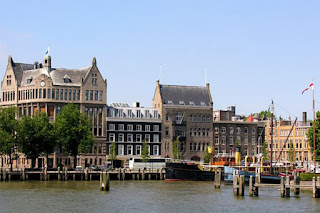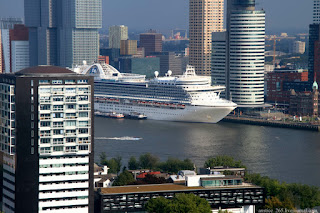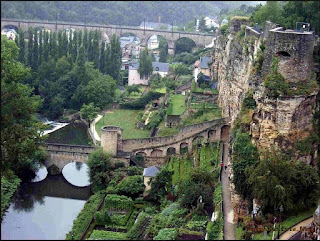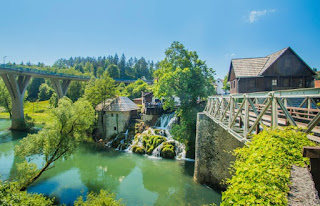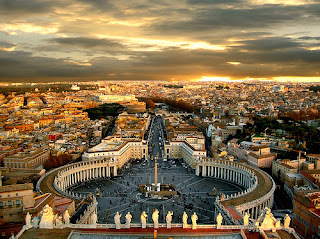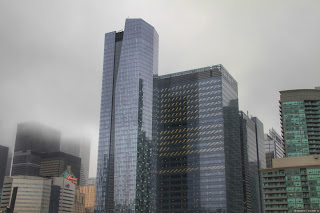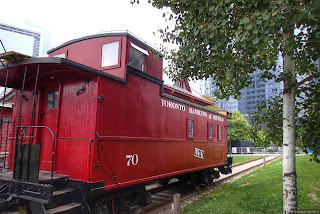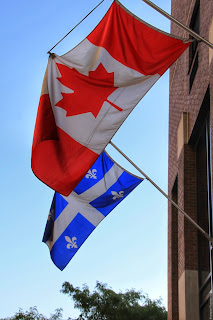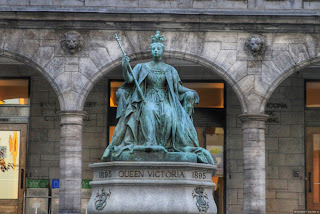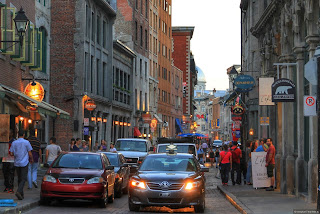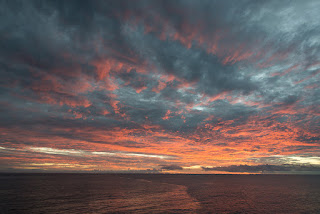Rotterdam, the Netherlands: walking through the streets
sergiy
February 04, 2019
Rotterdam makes a completely
different impression than Amsterdam. This is the second largest city of
Holland, the center of engineering and a major transportation hub. So, the port
of Rotterdam until 2004 was considered the largest in the world (but remains
the largest in Europe). The city is also famous for its architecture,
well-known architectural firms such as OMA and MVRDV are located here.
In Rotterdam come from Amsterdam
by train. In total some time - and we are at the other end of the country, in the
province of South Holland, in the area where the Nieve-Meuse flows into the
North Sea.
The sights of Rotterdam, as
already mentioned, could be seen right at the exit from the hotel: the
ultra-modern Erasnusbrug bridge looked so damn entertaining, I noted that in
the evening when the crossing was highlighted. Built in 1996, the Erasmus
bridge turned out to be extremely successful, and the architecture of the
opposite bank turned out to be suitable for it. It is a pity that the fog
somewhat concealed panoramas, and the overcast sky did not allow us to take
bright pictures. I also had to postpone the planned Maas cruise for the future,
and, apparently, not to me alone: in front of my eyes I set off from the pier
a completely empty boat, with which you can get from Rotterdam to Dordrecht on
the river.
In addition to residential
premises, the cubic houses of Rotterdam also burned some offices, a visit to
those can give an idea of the internal structure of the houses, they are
unlikely to let tourists into the residential premises. Look, for example, the
sign "Around Town", this is a bicycle rental office that allows you
to feel like a real Dutchman. Rent a two-wheeled horse costs 15 euros per day,
25 euros per couple of days.
I remembered the cubic houses of
Rotterdam, but did not like it; much more of these freaks impressed me with the
buildings along Haringvliet, the former harbor of fishing boats. Here there
were truly marvelous buildings, just the way I like them, in the typical Dutch
style. Unfortunately, the neighborhood of small neat buildings were huge
skyscrapers, built over the past few decades and completely redesigned the
historical view of the city.
The park itself corrected my mood, quite nice, even despite the “icy
winter season”. Probably, in summer, the local landscapes look gorgeous at all,
only the green array is definitely deprived of the attention of tourists: the
guests of Rotterdam are in a hurry to climb the Euromacht, and skip past.
Meanwhile, this territory is considered the most beautiful park of the city. In the center of the city I still remember the church of Peter and Paul,
built in the neo-baroque style. The date of its birth is 1910, but the temple
has stood at this place since at least the 18th century, and the current building
is considered to be its successor: not only is the location and name preserved,
the new building inherited many of the details of the old interior; in
particular, the altar of the 1720s, skillfully made by the Flemish masters,
passed to it. There
were also such sights of Rotterdam that did not impress me. Take here at least
the town hall: remembering how colorfully decorated similar buildings in
Brussels and Antwerp, I was extremely disappointed to see a massive, devoid of
decor building. He is partly excused by the modern origin - the construction
belongs to the period of 1914-1920, and yet, it seems to me, the architect
could have created a memorable building, if he were to deal with a twinkle. After two days of sightseeing in Rotterdam, I was quite pleased: I was
able to fulfill and even exceed the plan for exploring the city. Another thing
is that due to bad weather I never got to the most interesting Dordrecht. But
at the end, I finally managed to get from Rotterdam to The Hague - trains on this
route run several times an hour, so I sat down on one of the trains, hoping for
the rest of the day not only to see the capital of Holland, but also to get to
the North Coast seas. 